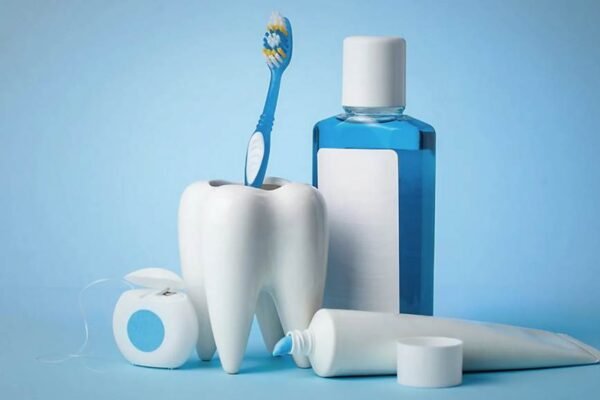Table of Contents
Introduction
As awareness among Muslim consumers increases about the ingredients in personal care products, manufacturers are recognising the opportunity to cater to this expanding market.
Toothpaste brands are seeking halal certification to meet the growing demand for halal-certified dental products. Having the halal certification logo on your product will enable you to expand your market reach.
In this guide, we will highlight the halal certification process for toothpaste manufacturers. Continue reading to learn about the key ingredients and more about halal toothpaste.
Understanding Halal Toothpaste
A few years ago, halal signs were only common in butchers’ shops. However, today, halal is becoming a popular brand among hygiene and beauty products.
Halal toothpaste refers to an oral hygiene product that complies with Islamic dietary laws as prescribed in the Quran. Halal is an Arabic word that means “that which is permitted” in Islam. The opposite, or what is forbidden, is known as haram.
A halal toothpaste is free from haram substances in its ingredients. The substances include animal-based glycerin derived from forbidden animals such as pork, alcohol, and gelatin. A halal toothpaste manufacturing process also ensures that the product is free from any contamination from haram substances, even during packaging.
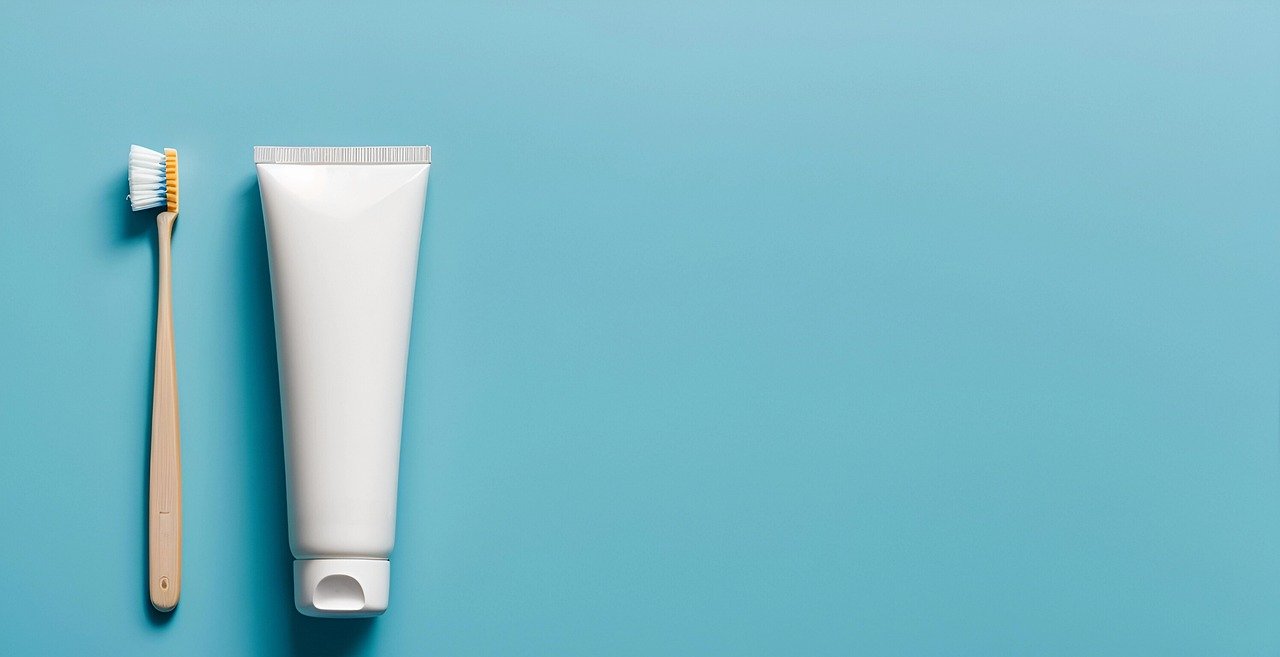
What Makes Toothpaste Halal or Haram?
The use of dental hygiene products dates back centuries. Product formulation varies among cultures and regions, depending on local beliefs and the availability of ingredients. The primary differences between halal and non-halal toothpaste are the ingredients used, manufacturing protocols, and risks of cross-contamination.
For many consumers, halal certification is vital. It offers assurance that the product has undergone a vetting process and meets all halal requirements. Halal-certified toothpaste uses ingredients sourced and processed following Islamic law (Hakum Syara).
The production of halal toothpaste must adhere to strict manufacturing protocols. It must eliminate any risks of cross-contamination during manufacturing and the use of packaging made from halal products.
A toothpaste is haram if it uses ingredients forbidden according to Islamic dietary laws. Examples of haram substances commonly found in mainstream toothpaste include:
- Animal-based products from forbidden animals like pork
- Glycerin sourced from animals not slaughtered according to Islamic principles
- Alcohol
- Flavourings that contain haram substances
Brands can avoid haram substances in their products by using alternatives and ensuring that they source their ingredients from halal-compliant suppliers.
Why Halal Toothpaste Is Gaining Traction
In recent years, there has been a growing demand for halal-compliant products. So, why is halal toothpaste in demand? Halal toothpaste is gaining traction due to the increasing awareness and concerns among consumers regarding ingredient sourcing and the clean-label trend. Other reasons why halal toothpaste is gaining traction are:
- Increasing demand for products that embody the spirit and technicalities of halal.
- The growing trend among Muslim consumers of personal care products
- Growth of the Muslim diaspora in the West
- Rising middle class in Muslim countries
Although the halal market has its foundations in the spiritual, non-Muslims are embracing it too. People against animal cruelty and vegans are likely to consider a halal toothpaste. The same applies to individuals who have concerns about the sustainability and hygiene of production processes.
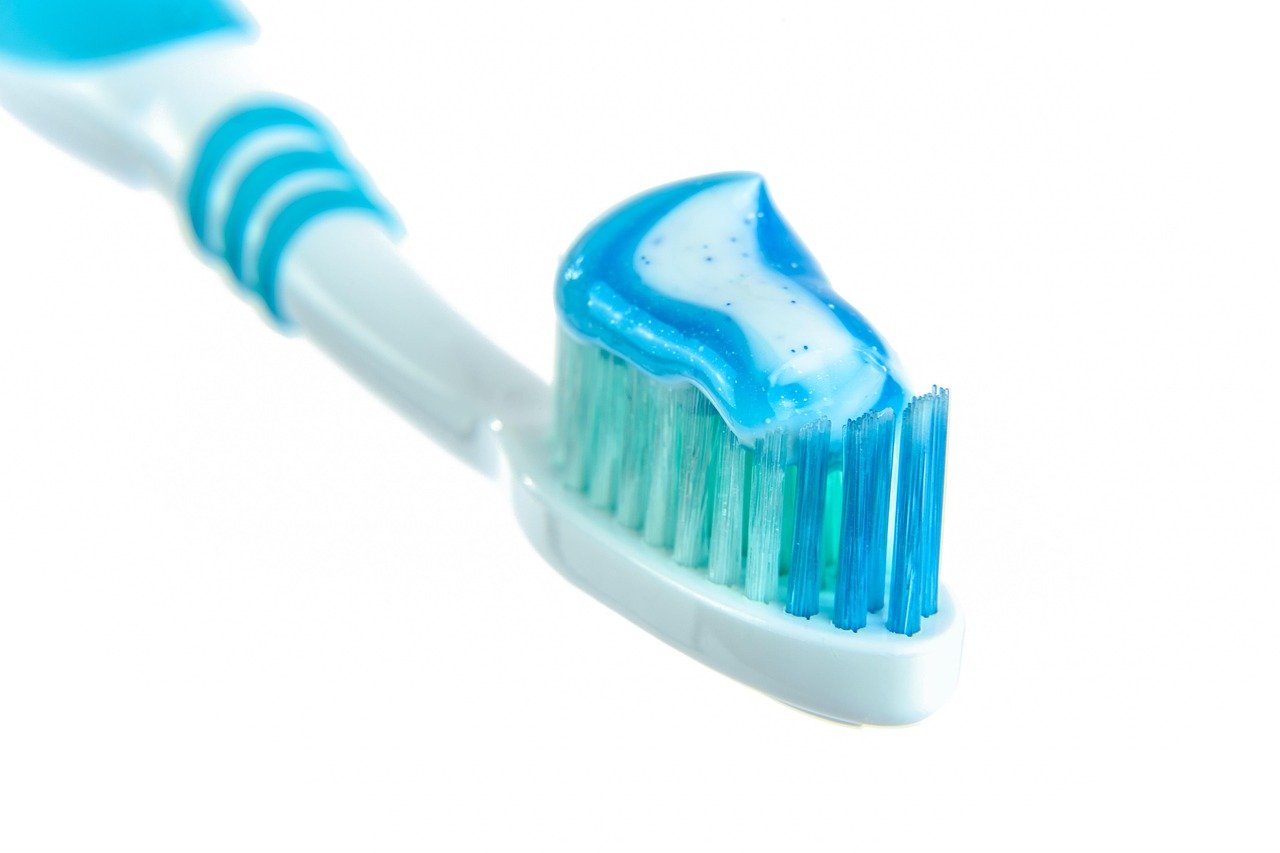
Halal Toothpaste and Ethical Consumerism
Toothpaste manufacturers are beginning to provide alternatives to non-discriminatory products. Such products target customers’ demand according to various factors, including religion and oral health conditions, such as sensitive teeth.
The provision of halal-compliant oral products is almost a secular phenomenon. However, halal strict material sourcing and verification, as well as manufacturing process auditing, overlap with other ethical considerations.
The main areas where halal certification overlaps with other ethical considerations are:
Sustainability
Making halal toothpaste involves using ingredients that conform to Islamic dietary laws. You will need a certified halal supplier for your raw materials. Such a supplier must be capable of maintaining a consistent inventory level throughout the year, similar to the mainstream industry.
Cruelty-free Manufacturing
Halal toothpastes use non-animal products. So, you have assurance that no animal suffered in the process of making your favorite dental care product. You need not feel guilty when brushing your teeth with a halal toothpaste.
Vegan Ingredients
It is capable of making halal toothpaste using vegan ingredients. An option that favors those who strictly avoid animal products. Many toothpaste manufacturers are producing vegan-friendly products to cater to this growing segment.
Explain how brands are leveraging halal status as part of broader ethical marketing.
Many toothpaste brands are leveraging their halal status as part of a broader ethical marketing strategy. The trend is helping companies in various ways, such as:
- Targeting new markets
- Catering for ethically conscious consumers
- Giving assurance of the hygiene level
- Guaranteeing the ingredients used
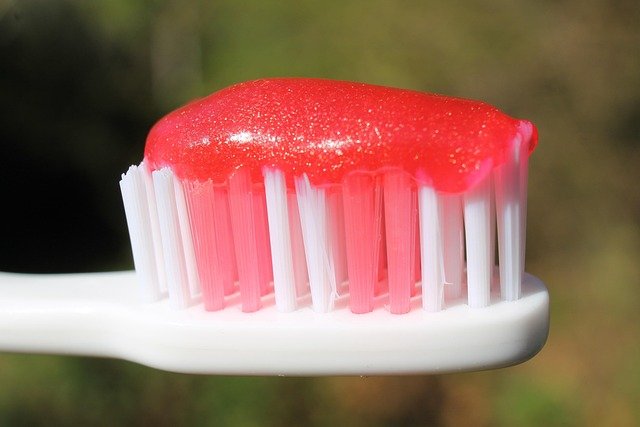
How Brands Can Achieve Halal Certification for Toothpaste
The recent growth in Halal personal hygiene products highlights the need for proper certification to protect consumers. There are third-party bodies that play a role in certifying producers and ensuring they follow strict rules regarding sourcing, processing, and packaging. The halal certification process will take about 8-12 weeks
Here are the steps to follow when seeking halal certification for toothpaste.
Step 1: Evaluate Ingredients for Compliance- Week 1-2
Guide brands on how to assess raw materials and switch to halal-friendly options for flavoring agents, sweeteners, and binders.
The certification process begins with a thorough evaluation of all the ingredients used in the toothpaste. It includes ensuring that no haram substances, such as flavoring agents, sweeteners, and binders, are present. The source of each raw material is verified to ensure it is permissible.
Step 2: Ensure Manufacturing Process Is Halal-Compliant- Week 3-5
After applying for halal certification, your manufacturing process undergoes scrutiny to ensure that it adheres to halal laws. Verifications of the manufacturing process include:
- The handling and storage of ingredients (separated in case of using what is considered haram)
- Factory cleanliness, including staff (they also need to be trained on halal practices)
- Adherence to good manufacturing practices
- Equipment sanitation should not use any contaminating substances
- Separation of production lines to avoid contamination, especially if working with multiple products
Step 3: Partner with a Recognized Halal Certifying Body- Week 6
Once your toothpaste and manufacturing process pass the stringent evaluation, you need to partner with a recognized halal certifying body. These are reputable third-party organizations responsible for certifying halal products. Notable ones include JAKIM, IFANCA, and Halal Certification Authority.
Notably, halal certifying authorities are secondary to regulatory bodies such as the FDA and the ADA. You also need to walk through the documentation and audits as per the requirements of the Halal Authority.
Step 4: Undergo Audits and Receive Certification- Week 7-12
Upon application for halal certification, the authority will send in auditors to inspect the facility. The applicant covers the cost of the site audit, including transport for the auditors. The timeline from application to issuance of a halal certificate may differ depending on location and logistics.
Halal certification is not a one-time process. The authority will conduct regular audits and inspections to ensure adherence to strict compliance. You also need to maintain proper and verifiable records to ensure continued certification.
If you are successful, the authority grants you a certificate and the right to use halal logos and labels on your toothpaste brand.
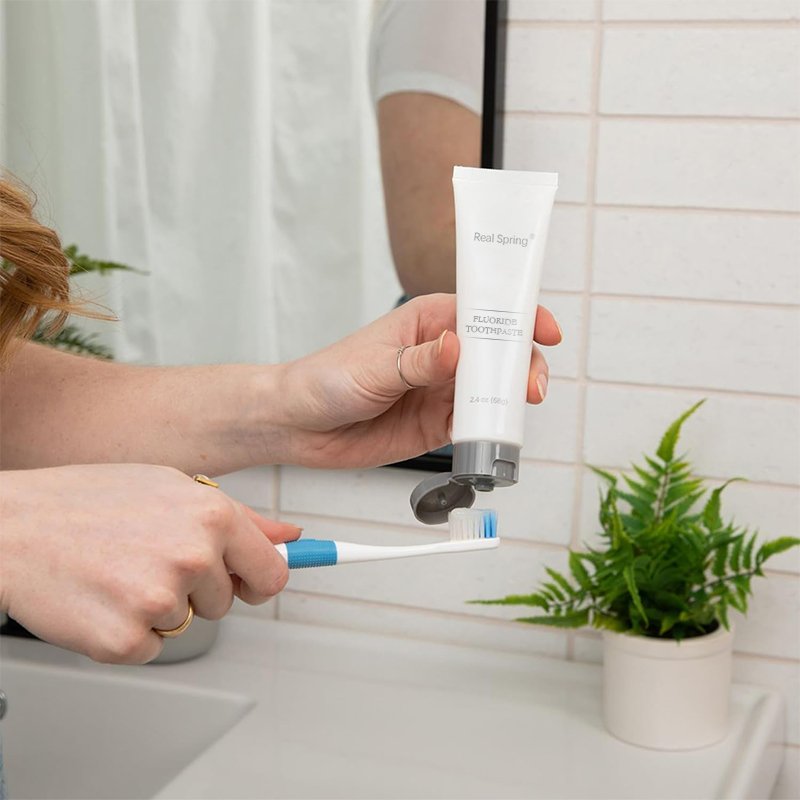
Benefits of Offering Halal-Certified Toothpaste
Making a halal-certified toothpaste may seem time-consuming and coupled with financial burdens. However, the benefits of offering halal-certified toothpaste exceed the process cost.
The competitive advantages of becoming halal-certified include:
Access to Muslim-Majority Markets
The Quran dictates that humankind should eat from what is on Earth, but only what is Lawful (Halal) and Good. Eating the forbidden (Haram) is going against Islamic beliefs. So, becoming halal-certified will give your product a chance to enter a Muslim-majority market.
Differentiation in Ethical Retail Spaces
Obtaining a halal certification requires meeting a set of additional ethical standards. It is a reason that makes halal-certified toothpaste stand out among ethically conscious consumers. Retailers are seeking products that cater to the diverse population within their community to attract more customers.
Increased Brand Loyalty
When your consumers understand that you maintain high standards in your production, they build brand loyalty. Offering your consumers a brand with halal certification increases their trust in the product. Toothpaste is a consumable product that a loyal consumer will continue buying over a lifetime if they remain faithful.
Improved Consumer Trust
A halal certification logo on your toothpaste brand increases consumer trust in the product. It means that you conform not only to Islamic virtues, but also to other dental and health regulatory bodies. It also shows that you are following Good Manufacturing Practices, and the factory maintains a high level of hygiene with no risk of contamination.
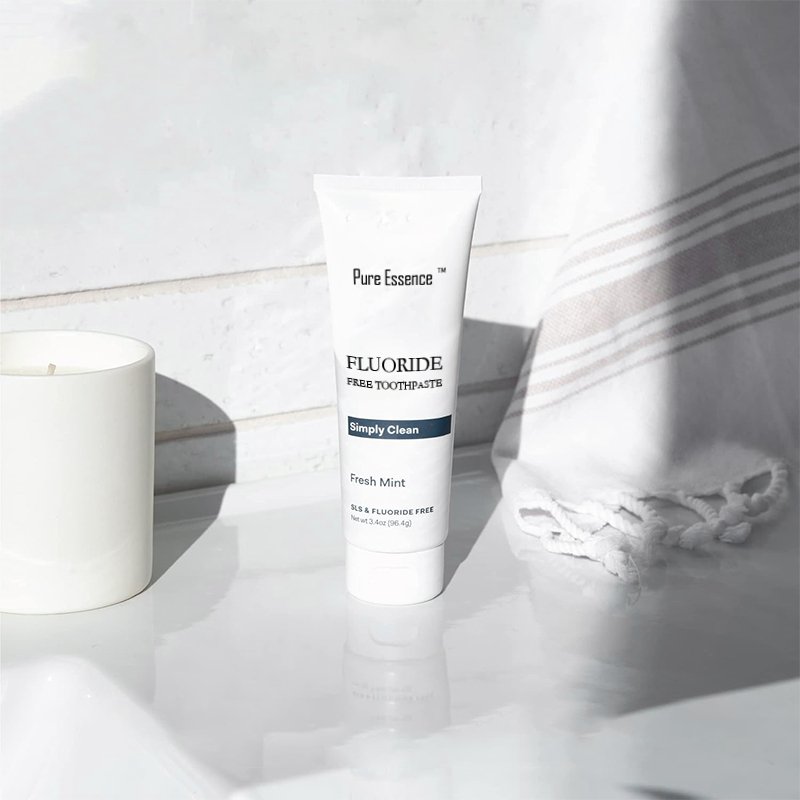
Challenges in Halal Toothpaste Certification
While seeking halal toothpaste, you may encounter some challenges. The hurdles shouldn’t stop you in the quest for halal toothpaste certification. Some of the difficulties in halal toothpaste certification include:
Sourcing Compliant Ingredients
To pass a halal certification audit, your supplier must also conform to Islamic dietary laws in the handling and processing of the ingredients. The right supplier may have different prices, terms, or additional costs. You can contract a halal toothpaste manufacturer to ensure high-standard ingredients, bulk production, and a consistent supply.
Managing Supply Chain Transparency
The challenge is significant when outsourcing your supply chain services. It may be difficult to ensure zero contamination during both incoming and outgoing deliveries.
Cost of Certification
The cost involved in obtaining the halal certification may be high if working on a tight budget. You may need to source new suppliers, adjust the plant, invest in new equipment, and undertake other necessary changes.
Maintaining Consistency Across Products
Are you already producing a popular toothpaste brand that uses a substance that is haram? Remodifying your formula may result in inconsistencies with the brand. Current customers may feel dissatisfied with your halal-certified toothpaste due to the presence of missing or new ingredients.
Global Market Trends in Halal Oral Care
The global market trend for halal oral care products is on the rise, with wider prospects. It is an opportunity that major brands are recognising and are entering the space. The increase in disposable income in Muslim-majority regions boosts their buying power.
There is also a growing population of Muslim diaspora in the UK and the USA who will also need halal oral care products. The market for halal toothpaste is not only targeting Muslims, but other communities are embracing the product due to their ethical standards.
The forecast for halal personal care product demand in the coming years will only increase as more people continue to associate them with high standards and ethics.
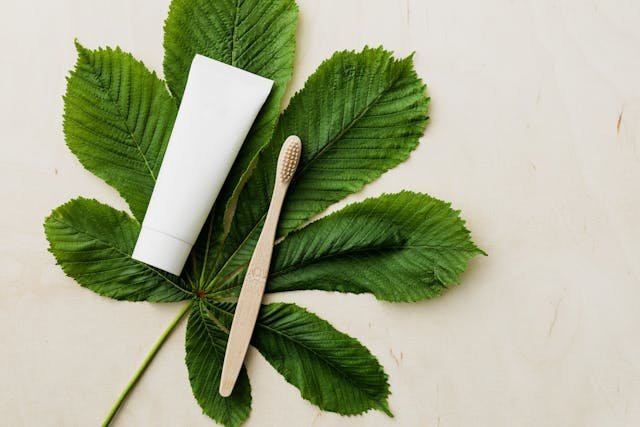
Final Thoughts: The Future of Halal Toothpaste in the Oral Care Industry
Halal toothpaste offers a revolution in the oral care industry. The certification process ensures safety and ethical practices in production. It doesn’t mean mainstream toothpaste brands are inherently bad, but they may contain substances prohibited in Islamic dietary laws.
Muslim consumers now have a choice of using a toothpaste that conforms to their beliefs. The same is true for ethically minded consumers, as they are aware that the halal certification process and audits undergo strict verification.
Investing in halal certification will give your product access to the Muslim-majority market. Having a halal logo on your toothpaste brand shows a high level of ethics, transparency, and trust. You will also be opening doors for long-term growth of the brand.
FAQ
What makes toothpaste halal or haram?
A toothpaste is halal if it uses only permitted edible substances as specified in the Quran. Haram toothpaste contains prohibited substances or fails to adhere to the halal laws of food processing and handling.
Is fluoride halal in toothpaste?
Fluoride is mined from the Earth’s crust and is therefore considered halal. All the water we drink contains fluoride.
Can non-Muslims use halal toothpaste?
Yes, halal toothpaste uses natural ingredients. It is also beneficial if you are a vegan or opposed to animal cruelty.
How long does the halal certification process take?
The halal certification process depends on the authority you choose, location, and logistics. Another consideration is your preparedness, as you must pass the audits. Usually it takes 8-12 weeks.
- Step 1: Evaluate Ingredients for Compliance- Week 1-2
- Step 2: Ensure Manufacturing Process Is Halal-Compliant- Week 3-5
- Step 3: Partner with a Recognized Halal Certifying Body- Week 6
- Step 4: Undergo Audits and Receive Certification- Week 7-12
Do all halal certifications mean the same thing globally?
No, but there are halal certification bodies that are more widely recognized globally. If you are targeting the USA and UK markets, you need halal certification from JAKIM, IFANCA, and the Halal Certification Authority.
Is halal toothpaste vegan or cruelty-free?
Yes, most halal toothpastes do not use animal products in their recipe.





